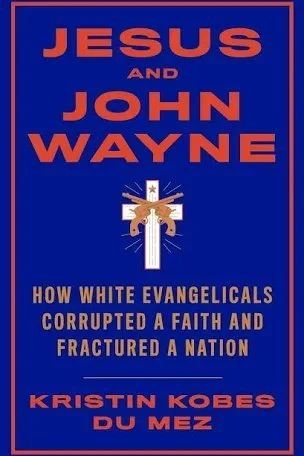Jesus and John Wayne, Part 2
I want to follow up on the post about the book Jesus and John Wayne from a couple of weeks ago. I gave one example then from the book of something Du Mez points out as a weakness of the evangelical message: the depiction of “godly”masculinity that gets promoted without any scriptural backing for the characteristics that are upheld, and the damage that has done to many men.
Another example I wanted to throw out for us to ponder is the emphasis on marriage and the family that took hold in the 1940’s-50’s. As Du Mez explains, the evangelical movement’s leaders realized they needed to band together to strengthen their cultural influence, but they were from many different denominations: Methodist, Baptist, Catholic, Pentecostal, Reformed, Nazarene, Presbyterian, etc. All of these churches have differing doctrines, and in the early 1900’s, those differences were considered more consequential and, therefore, divisive.
So the leaders had to find a way to unify the movement without focusing on the doctrinal differences. Their common beliefs on marriage and family became the de facto rallying point for much of the evangelical focus, mainly in books and magazines, on radio programs, at seminars, and for political involvement.
This created a serious problem, in my opinion. It removed the focus off Jesus onto one piece of the Christian life. This created an unhealthy emphasis on the centrality of the family and marriage. Instead of a focus on so many other aspects of Christianity – God in Jesus, the trinity, the work of the Holy Spirit, spiritual formation, the life and witness of the church, Christian fellowship, wisdom, grace, justice and righteousness, etc. – marriage and the family predominated. It deserved to be on the list of components of the Christian life, but not singled out so disproportionately.
The result of this was that many single people – never married, divorced, and widowed – have felt quite alienated from much of the life of the church. This is ironic since Jesus was single. And also tragic, since the church was created to be the family of God, and the place where people with no family can have a family.
These are two examples of how the book was informative to me and helped me see some things about the evangelical church from a more historical, objective perspective. There are so many great things evangelicals have done. This book does not dismiss any of that. But it’s a needed corrective to show us how our culture necessarily influences us, even if we are trying to just be influenced by scripture, and we need to keep our eyes open to that.
So read the book and give me your feedback.




